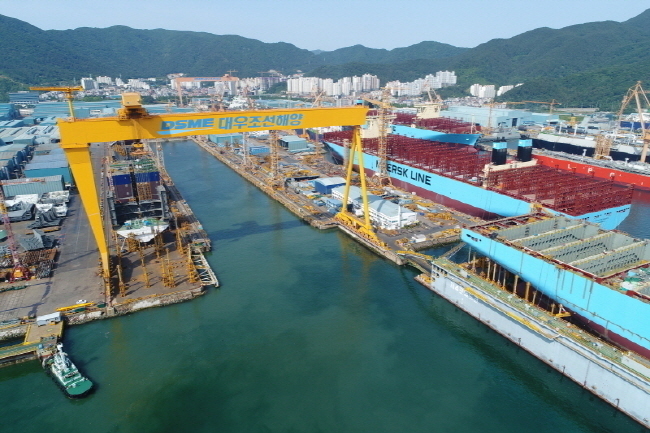The Korean government on Wednesday denied the Japanese government’s claim that Seoul breached international trade rules, saying its decision to provide subsidies to ailing shipbuilders complies with the rules.
Officials at South Korea’s Trade Ministry said they are willing to talk with their Japanese counterparts, amid reports that Japan is preparing to file complaints to the World Trade Organization.
“We will recheck whether the issues raised by Japan breach trade laws,” said a statement released by the Ministry of Trade, Industry and Energy on Wednesday.
“We will also provide an explanation to the Japanese government during bilateral talks that our decision to support Korean companies was made based on commercial judgment and it complies with international rules,” it added.
On Tuesday, Japan requested bilateral talks through dispute resolution proceedings of the WTO over subsidies for the Korean shipbuilding industry. Officials from Tokyo claimed that the Korean government’s subsidies have inflicted serious damage on its shipbuilders, as state support has allowed Korean shipbuilders to win orders at below market price.
Japan said that the Korea Development Bank and the Export-Import Bank of Korea’s provision of financial assistance to three shipbuilders — Daewoo Shipbuilding & Marine Engineering, Sungdong Shipbuilding & Marine Engineering and STX Offshore & Shipbuilding — has violated the WTO agreement.
Under the dispute settlement procedures of the WTO, the two nations should have consultations within 30 days. If they do not reach an agreement in 60 days, a dispute settlement body will be established within the WTO.
Although both sides did not make any remarks linking the trade issue with politics, some Japanese media outlets, including Nikkei Asian Review, the Sankei News and Mainichi Shimbun, reported that Japan’s strong trade action could be related to Seoul’s latest decision on forced labor.
The Supreme Court in Korea last week ruled that Nippon Steel & Sumitomo Metal must pay 100 million won ($88,000) each to plaintiffs who were forced to work at its steel mills between 1941 and 1943 during Japan’s occupation of the peninsula.
Officials at the Trade Ministry declined to comment on such reports, saying they are not in a position to comment on diplomatic matters.
By Shin Ji-hye (shinjh@heraldcorp.com)


